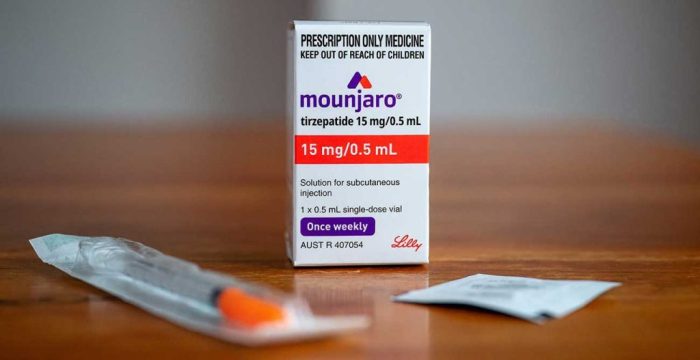Trulicity Side Effects: What Patients Should Know Before Starting
Delving into Trulicity Side Effects: What Patients Should Know Before Starting, this introduction immerses readers in a unique and compelling narrative, with a casual formal language style that is both engaging and thought-provoking from the very first sentence.
Providing a detailed look at the potential side effects of Trulicity medication and the importance of being aware of them before starting treatment.
Trulicity Side Effects Overview
Trulicity is a medication commonly prescribed to help manage type 2 diabetes. It belongs to a class of drugs known as GLP-1 receptor agonists and works by stimulating insulin release in response to high blood sugar levels.Common side effects associated with Trulicity include nausea, diarrhea, vomiting, abdominal pain, decreased appetite, and indigestion.
These side effects are usually mild and may improve over time as your body adjusts to the medication.It is important for patients to be aware of the potential side effects of Trulicity before starting treatment. Understanding these possible adverse reactions can help you better manage them and know when to seek medical advice if needed.
Common Side Effects of Trulicity
- Nausea
- Diarrhea
- Vomiting
- Abdominal pain
- Decreased appetite
- Indigestion
Mild Side Effects
When taking Trulicity, patients may experience some mild side effects that are typically manageable and temporary. It is important to be aware of these potential effects and know how to address them for a more comfortable treatment experience.
Common Mild Side Effects and Management Tips
- Nausea: Some patients may experience mild nausea when starting Trulicity. To help alleviate this, try taking the medication with food to reduce stomach upset. Avoid spicy or greasy foods that may worsen nausea.
- Diarrhea: Diarrhea is another common side effect that may occur. Stay hydrated by drinking plenty of fluids and eat bland, easy-to-digest foods to help normalize bowel movements. If diarrhea persists, consult your healthcare provider.
- Injection Site Reactions: Mild redness, itching, or swelling at the injection site is possible. To minimize discomfort, ensure proper injection technique and rotate injection sites. If irritation persists or worsens, seek medical advice.
When to Consult a Healthcare Provider
- If mild side effects persist or become severe, it is essential to contact your healthcare provider for guidance. They can provide personalized recommendations based on your symptoms and medical history.
- Any new or unusual symptoms that cause concern should be promptly discussed with a healthcare professional. It is crucial to address any changes in health while taking Trulicity to ensure your well-being.
Severe Side Effects

When taking Trulicity, it is crucial to be aware of potential severe side effects that may arise. These side effects require immediate medical attention to prevent any complications.
Examples of Severe Side Effects
- Severe allergic reactions: Symptoms may include difficulty breathing, swelling of the face, lips, tongue, or throat, and hives. Immediate medical attention is necessary if these symptoms occur.
- Pancreatitis: This condition can cause severe abdominal pain that may radiate to the back, nausea, and vomiting. Seek medical help promptly if you experience these symptoms.
- Thyroid tumors: In rare cases, Trulicity has been associated with thyroid tumors. Symptoms may include swelling in the neck, difficulty swallowing, and hoarseness. Consult a healthcare provider if you notice these signs.
Long-Term Effects
When considering the long-term effects of using Trulicity, it is important to weigh the potential risks against the benefits of this medication. Long-term use of Trulicity can have both positive and negative impacts on your health, so it is crucial to stay informed and work closely with your healthcare provider to monitor and manage any long-term effects that may arise
Risks versus Benefits of Long-Term Trulicity Use
- One of the key benefits of long-term Trulicity use is the potential for improved blood sugar control in individuals with type 2 diabetes. By helping to regulate blood sugar levels, Trulicity can reduce the risk of complications associated with diabetes.
- On the other hand, there are certain risks to consider with long-term Trulicity use. Some individuals may experience gastrointestinal side effects such as nausea, diarrhea, or vomiting, which can be bothersome and impact quality of life.
- In addition, there have been reports of rare but serious side effects such as pancreatitis or kidney problems in some individuals using Trulicity long-term. It is important to be aware of these risks and discuss them with your healthcare provider.
Monitoring and Managing Long-Term Effects with Healthcare Professionals
- Regular monitoring of your blood sugar levels, kidney function, and overall health is essential when using Trulicity long-term. Your healthcare provider may recommend routine blood tests and check-ups to ensure that the medication is working effectively and not causing any adverse effects.
- If you experience any new or worsening symptoms while taking Trulicity, it is important to report them to your healthcare provider immediately. They can help assess the situation, adjust your treatment plan if needed, or provide additional support to manage any long-term effects.
- Open communication with your healthcare team is key to effectively managing the long-term effects of Trulicity. Be proactive in discussing any concerns or questions you may have, and work together to find the best approach for your individual health needs.
Allergic Reactions
Allergic reactions to Trulicity can be serious and require immediate medical attention. It is important to be aware of the symptoms and know what steps to take in case of an allergic reaction.
Symptoms of Allergic Reactions
- Rash or hives
- Itching
- Swelling of the face, lips, or throat
- Difficulty breathing
- Dizziness or lightheadedness
Steps to Take in Case of an Allergic Reaction
- If you experience any of the above symptoms or suspect an allergic reaction, seek immediate medical help.
- Do not take any more doses of Trulicity until you have consulted with your healthcare provider.
- Inform your healthcare provider about any drug allergies you may have before starting Trulicity.
Importance of Informing Healthcare Providers
Informing your healthcare provider about any drug allergies is crucial to prevent allergic reactions and ensure your safety while taking Trulicity.
Last Recap

In conclusion, understanding the side effects of Trulicity is crucial for patients embarking on this medication journey. By being informed and proactive, individuals can navigate their treatment with confidence and awareness.
User Queries
What are some common side effects of Trulicity?
Common side effects include nausea, diarrhea, and stomach pain. It's important to monitor these and report any concerns to your healthcare provider.
How can mild side effects of Trulicity be managed?
Mild side effects can often be managed by staying hydrated, eating a healthy diet, and getting regular exercise. Consult your doctor if symptoms persist.
What are some severe side effects of Trulicity that require immediate medical attention?
Severe side effects like severe stomach pain, trouble breathing, or severe allergic reactions need urgent medical attention. Contact your healthcare provider immediately.
What should you do in case of an allergic reaction to Trulicity?
If you experience symptoms of an allergic reaction such as rash, itching, or swelling, seek medical help right away. Inform your doctor about any drug allergies.




